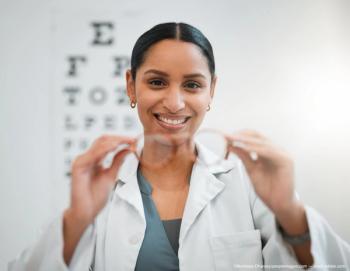
Verana Health developing Qdata Dry Eye Disease module
The company said the module, which includes real-world data on more than 10 million patients, will help advance research and accelerate therapy development for dry eye disease and other ocular surface disorders.
Verana Health today announced development of its newest Qdata Dry Eye Disease (DED) module in advance of the American Society of Cataract and Refractive Surgery (ASCRS) 2024 Annual Meeting.
The meeting is being held April 5 to 8 at the Boston Convention and Exhibition Center in Boston.
According to a company news release, Qdata DED represents an advancement in ophthalmology research, and is the largest of its kind, featuring an extensive dataset that will include outcomes and clinical information on more than 10 million de-identified patients with DED and related ocular conditions. Derived from the American Academy of Ophthalmology IRIS Registry (Intelligent Research in Sight), this data facilitates a deeper understanding of DED and other ocular surface disorders for clinical development, Health Economics and Outcomes Research (HEOR), medical affairs, and commercial teams.
Sujay Jadhav, CEO of Verana Health, said in the news release the company is harnessing the power of real-world evidence to transform patient care and expedite the development of crucial therapies.
“Qdata DED is a testament to our commitment of providing life sciences companies with access to a rich, expansive dataset that sheds light on the patient journeys, treatment effectiveness, and patient outcomes in dry eye disease,” Jadhav said in the news release. “This enables teams across the drug development lifecycle to evaluate patient outcomes, compare how cohorts of patients respond to various therapies and gain a better understanding of patients with ocular surface disorders.”
According to the company, its Qdata DED module will include extensive data on tests beyond what can be gleaned from codes alone (e.g., tear break-up time and Schirmer’s test results). These tests can help classify DED patients (e.g., evaporative or aqueous deficient), and provide insights on treatment outcomes in the real world for research.
The company noted in its news release that dry eye disease impacts some 16 million Americans and presents hurdles for patients and the ophthalmologists who treat them. The condition is increasingly common in today’s digital age, where prolonged screen exposure is routine can be a factor in its rise. If left untreaded, some forms of the disease can lead to severe complications, including corneal damage, highlighting the urgent need for advancements in research and treatment.1
Moreover, RWD is key to advancing patient care within the evolving healthcare industry, and Verana Health continues to expand its Qdata offerings to meet the growing needs of life sciences teams and clinicians.
Reference
1. Boyd K. Computers, Digital Devices and Eye Strain. American Academy of Ophthalmology. Published March 3, 2020. https://www.aao.org/eye-health/tips-prevention/computer-usage
Newsletter
Don’t miss out—get Ophthalmology Times updates on the latest clinical advancements and expert interviews, straight to your inbox.





























